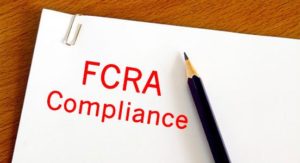Author Archives: Nancy
- in Uncategorized by Nancy
What Information Is Displayed In Background Reports?

Background checks can provide a critical way to protect your organization. The basic information needed to perform a background check includes:
- candidate’s full name (first, middle and last name)
- full date of birth
- Social Security Number
Common types of background checks include a criminal history check, social security, sex offenders, and credit reports. A variety of other information may also be included such as education, employment history, driving reports, and references. Applicant permission is required per the Fair Credit Reporting Act (FCRA). Additionally, The Equal Employment Opportunity Commission (EEOC) maintains regulations to ensure that discrimination does not occur, and enforces federal employment discrimination laws when it does occur.
Specific information can be expected to be included with each report. The most common results are outlined below.
Criminal Records
The following will show up on a criminal background check report if applicable:
- Arrests
- Convictions of felonies and misdemeanors
- Court records (i.e. dockets, orders, decrees, judgment)
- Incarceration records
- Sex offenses
- Warrants
Under FRCA, criminal convictions are the only source of information that has no federal limitation. There are, however, nuances to consider. For example, while civil suits or arrests cannot be seen after seven years, some reporting restrictions under FCRA (such as bankruptcies after 10 years and arrests after seven years), don’t apply to job candidates who will make more than $75,000 per year. Additionally, many states have enacted a more restrictive version of the FCRA.
Social Security Number Validation
Validation of an individual’s social security number involves a report that shows the name and address history associated with a given social security number. This type of screening is frequently used to confirm a person’s eligibility to work in the United States. However, it is important to note that individuals can provide a false name and social security number or there can be spelling mistakes that yield incorrect results.
Sex Offender Registry
Sex offenses are captured in criminal background checks and are also included as public records in state and national sex offender registries. In addition to a national sex offender registry, every state in the United States is required to maintain a sex offender registry. Since it is name-based only, there is no way to verify that the name-checked belongs to that person. Additionally, it only contains registered sex offenders, not individuals who have been convicted of any other type of crime.
Credit Report
With explicit, written permission, employers checking a credit report can see the following information (not a credit score):
- Bankruptcy
- Accounts placed for collection
- Loan information
Other Reports
Additionally, employers, volunteer organizations, and educational institutions can request check military records, driving records, workers’ compensation, character references, drug test records, or educational records. Each state has its own laws about how much information a third party can see.
Ultimately, the information that shows up on a background check depends on what type of background screening is performed and its purpose.
- in Uncategorized by Nancy
FCRA: What Employers Need to Know
 While background information such as work history, medical history, education, financial history can be invaluable when making personnel decisions employers must understand the laws they must comply with to protect employees/volunteers and employee candidates from discrimination. The regulations governing the actions of professional background screeners as well as end-users are spelled out in the Fair Credit Reporting Act (FCRA), the Consumer Financial Protection Bureau’s “A Summary of Your Rights Under the Fair Credit Reporting Act” and the “Notice to Users of Consumer Reports: Obligations of Users Under the FCRA.”
While background information such as work history, medical history, education, financial history can be invaluable when making personnel decisions employers must understand the laws they must comply with to protect employees/volunteers and employee candidates from discrimination. The regulations governing the actions of professional background screeners as well as end-users are spelled out in the Fair Credit Reporting Act (FCRA), the Consumer Financial Protection Bureau’s “A Summary of Your Rights Under the Fair Credit Reporting Act” and the “Notice to Users of Consumer Reports: Obligations of Users Under the FCRA.”
The FCRA ensures compliance by employers or organizations that decide not to move forward with an applicant after receiving the report from a background check.
Permissible Purpose
Under the FCRA, a consumer reporting agency (CRA) can only conduct background checks for a “permissible purpose.” This means that the person has to be someone who will be potentially employed by or volunteer with the organization.
Disclosure and Authorization
Before obtaining a consumer report, the organization must first obtain written consent from the applicant. This notice to the applicant is known as the disclosure form.
In addition to the disclosure form, the applicant must receive and sign the authorization form that permits the employer to run the background check.
The disclosure and authorization forms must be stand-alone documents that are separate from the application. It is important that the authorization form is not buried within the application to ensure it is clear to the applicant that a background check will be run on them.
Pre-Adverse Action
After receiving the consumer report, if an organization decides not to move forward with the applicant based on the background check results, the organization is required to provide the applicant with a pre-adverse action notice. The purpose of this letter is to provide the applicant with a copy of the consumer report and a description in writing of the rights of the consumer. The pre-adverse action process must also be followed if a current employee is rescreened and fired or not promoted due to the results.
Applicants who are denied employment based in whole or in part on their background check are entitled to a free background screening report from the named agency within 60 days of their employment being denied or terminated. Employers and organizations must allow “reasonable time” to the applicant to respond, which is often five business days but can be shorter or longer as long as it is reasonable.
Adverse Action
Once “reasonable time” has been provided, a second document, known as the adverse action notice, is required to be sent. The pre-adverse action notice and the adverse action notice cannot be sent in the same document. The adverse action notice must include the name, address, and phone number of the CRA, explain how to obtain a free copy of the report, and include information to let the applicant know they have the right to dispute any information contained in their report.
Failing to comply with the FRCA can result in a civil action in federal court against the employer or organization. Please contact us with questions about background check compliance and to help simplify FCRA compliance.
- in Uncategorized by Nancy
Background Checks for Churches

“The last safe place is safe no more.” -Daniel Handler
It’s hard to comprehend that background checks in churches are just, if not more, important than a business. Think about the number of people who come through the doors each week, think about the parents who are leaving their children in the nursery to a complete stranger.
Ensuring a high level of trust is important in any organization, but especially for those served through churches and many volunteer organizations. When managing volunteers, it’s critical that organizations create and maintain the safest environment possible.
Conducting background checks can serve as a key step in ensuring the right fit for those who want to volunteer with a church or nonprofit organization. Careful screening is especially important in situations where volunteers have supervised or unsupervised contact with minors.
Why conduct background checks?
It is wonderful that volunteers give freely of their time to help an organization work toward a greater good. Unfortunately, there is no guarantee that every volunteer has pure intentions.
A ministry or organization that serves children and youth has an obligation to exercise “due diligence” with regards to protecting its members, especially children.
By performing background checks on volunteers, the organization is:
- Establishing a safeguard at the “doorway” of the organization to help identify the best partners.
- Offering peace of mind to discerning parents by being pro-active in helping protect children.
What is a background check?
A background check is a “records” screening of an individual that can involve as little as a one-county check or be as in-depth as a security clearance investigation. It can include criminal background checks, fingerprint services, resume verification services, driving records, sex offender registry searches, national criminal searches and more.
Public and private records can be searched once applicant consent is given to help determine if information provided by an applicant is true and accurate.
What criteria is required for a background check?
The data provided in the many databases searched is not equally maintained and accessed by each state. For that reason, it’s critical to partner with a credible background screening company.
A reputable firm may also be able to help an organization establish an online volunteer screening process that invites potential volunteers via email to a website with an embedded link to sign Fair Credit Reporting Act (FRCA) release forms and provide personal information like their address, date of birth and social security number. All information shared remains private and secure with no paper forms required.
Conducting background checks help churches and volunteer organizations ensure they have volunteers working with them who will further the mission of their ministry or cause.
- in Uncategorized by Nancy
Not All Background Checks Are Created Equal
 There are many compelling reasons to run background checks, including ensuring a safe workplace, hiring qualified people, minimizing liability in the hiring process, and to encourage honesty during the application phase.
There are many compelling reasons to run background checks, including ensuring a safe workplace, hiring qualified people, minimizing liability in the hiring process, and to encourage honesty during the application phase.
Background checks can vary in the information collected, including criminal history, fingerprint services, resume verification services, driving records, sex offender registry searches, national criminal searches, consumer reports, and more. Depending on the reason for the background check and the type of background check conducted, different data will be available.
There is no single all-encompassing background check database available in the United States. Many different databases can be used to conduct background checks on individuals. Two common types of background checks conducted are a fingerprint-based check and a name-based check.
Fingerprint-Based Check. Fingerprints are a form of “biometric-based” identification which means fingerprints are unique to the biology of every person.
What’s involved?
- A fingerprint-based check uses fingerprints to identify an individual and to match any possible criminal records.
- An FBI (Federal Conviction Records Check) search looks for:
- Crimes involving federal law
- Crimes that cross state boundaries
- Crimes committed on federal property
- A BCI&I (Bureau of Criminal Identification & Investigation) record checks through Internet-based WebCheck® and looks for state conviction records.
All reports are pass/fail and complete results can take up to 30 days. Since only one Ohio Revised Code item is searched at a time and Ohio has about 100 different codes, a background report from another company should not be accepted because it’s not always possible to know what Ohio Revised Code was checked.
Social Security and Name Screening. A name-based check uses a person’s name and sometimes their Social Security number to match any possible criminal records.
What’s involved?
- It searches Department of Homeland Security Records and can also include a Social Security Administration records search.
- It is an internet-based system, so customized searches can be conducted quickly and at affordable.
Beware of false records
- Individuals can provide a false name and Social Security number, have multiple last names, or use nicknames.
- The National Mentoring Partnership estimates more than one percent of the 45 million individuals in the FBI criminal database have used more than 100 aliases and false Social Security numbers.
- There can also be “false positives” that arise as criminal records found may belong to another individual with the same or similar name.
For the best results, select a background screening firm that specializes in background checks. They can help you determine what the law requires regarding background checks for potential employees or volunteers. Free or very inexpensive background checks are often incomplete or inaccurate. Firms should provide comprehensive service and follow legal guidelines to ensure compliance with the Fair Credit Reporting Act (FCRA). Firms can also check criminal, educational/employment verification, and credit and make recommendations based on needs, the quality of data available, and industry best practices.
- in Uncategorized by Nancy
What does Ohio’s Medical Marijuana Law Mean for Your Business?
 Ohio’s medical marijuana law passed in 2016 and so began a two-year process to determine who will grow it and how it will be regulated.
Ohio’s medical marijuana law passed in 2016 and so began a two-year process to determine who will grow it and how it will be regulated.
It has also left business leaders with many questions as the September 8, 2018 implementation date approaches.
- How does the new law impact current and future employees?
- Can companies still enforce a drug-free workplace even if an employee has permission from a physician to use marijuana?
- What policies need to be in place to protect the business?
- What are the legal rights of the business?
It’s imperative for organizations in safety, public service, construction, trades, education, transportation/logistics, and health care to maintain a drug-free workplace policy. If you’re a drug-free workplace, you need to remain so and prepare for the new law.
Here’s what you need to know about the law:
- Nothing in the bill requires an employer to permit or accommodate an employee’s use of medical marijuana.
- Nothing in the bill prohibits an employer from establishing and enforcing a drug testing policy or drug-free workplace policy.
- Employers can discharge employees for medical marijuana if the use violated an employer’s drug-free workplace policy.
- An employee is ineligible for worker’s compensation if they were under the influence of marijuana.
What your business needs to do to be prepared:
- Review your policies and procedures.
- Work with your legal team to update your drug-free workplace policy to ensure it accurately addresses the new law and any potential loopholes that have been closed.
- Have all employees sign and return the policy to human resources.
- Proceed and enforce the policy.
“Change is inevitable. Progress is optional.” Tony Robbins
This new law provides businesses an opportunity to ask critical questions, update outdated policies, and have open conversations with employees about what is expected. If you have questions about your drug testing requirements and options, we’re available to discuss them in more detail.
We also provide BCI and FBI background checks for all medical marijuana owners, officers, and board members of cultivators, processors, and all testing labs and dispensaries.
Contact us at 614.961.7611 or admin@ohiopreemploymentservices.com.
- in Uncategorized by Nancy
Background Checks for Volunteers Now Vital
State Ramps Up Enforcement of Volunteer Background Check Laws
COLUMBUS, OH – Ohio schools have been forced to be more proactive as the state laws and regulations regarding background checks for school volunteers are only now being strictly enforced. Informal systems of appointing volunteers have resulted in parents with criminal records driving groups of children on field trips. School administrators have made it clear that things are going to change.
The goal is simply to make sure that parents, teachers and students all feel completely secure. The best way to accomplish this is by conducting background checks on each and every volunteer who works with the children. For example, at Westerville schools, volunteers who haven’t had background checks are not allowed to work with a group of children. Safety and compliance are attainable goals if everyone is willing to adhere to these more strict standards of operation.
Some parents site budget concerns and convenience as reasons they haven’t had background checks and cannot get involved with helping their child’s school. Your local PTO should discuss their options for possibly covering some of the cost and finding expert services that will come to you.
Nancy Henson, who is president of Mobile Fingerprinting Solutions, wants to help make it possible for every parent to contribute. She insists that it’s not an unrealistic goal. “We’re mobile because we understand the time constraints on parents and we don’t want them to not be involved because they don’t have time. Don’t let the background check be a reason not to be involved. We make it easy by coming to PTO meetings or other school events.”
If you want to consult an expert for your volunteer background checks, visit https://www.mobilefingerprintingsolutions.com/contact/ or you can call Nancy at 614-537-2142.
- in Uncategorized by Nancy
Summer Camp Hiring Season Means Background Checks
Ohio Requires all Camp Employees to have Background Checks
COLUMBUS, OH – Spring is here and that means summer camps all over Ohio need to hire staff members for their summer sessions. State regulations revised in November 2013 require all camp employees to pass a background check before being hired to work with children. Merely being in compliance with state regulations is crucial, but you should want it done right.
The safety of the children and the staff is the most important motivating factor in administering Ohio summer camp background checks to all your applicants. That’s why you need an expert. If done properly, and thoroughly, the background checks should ensure the safety of everyone at the camp.
Nancy Henson, president of Mobile Fingerprinting Solutions, offers her expertise on Ohio summer camp background checks:
“One allegation, one incident, and those camps that haven’t background checked would be prosecuted to the point that they may never function again. Recovering from an incident in which background checks were not administered is nearly impossible. Protect your camp and protect the children.”
If you want to consult an expert before beginning your summer camp hiring process, visit https://www.mobilefingerprintingsolutions.com/contact/ or you can also call Nancy at 614-537-2142.
